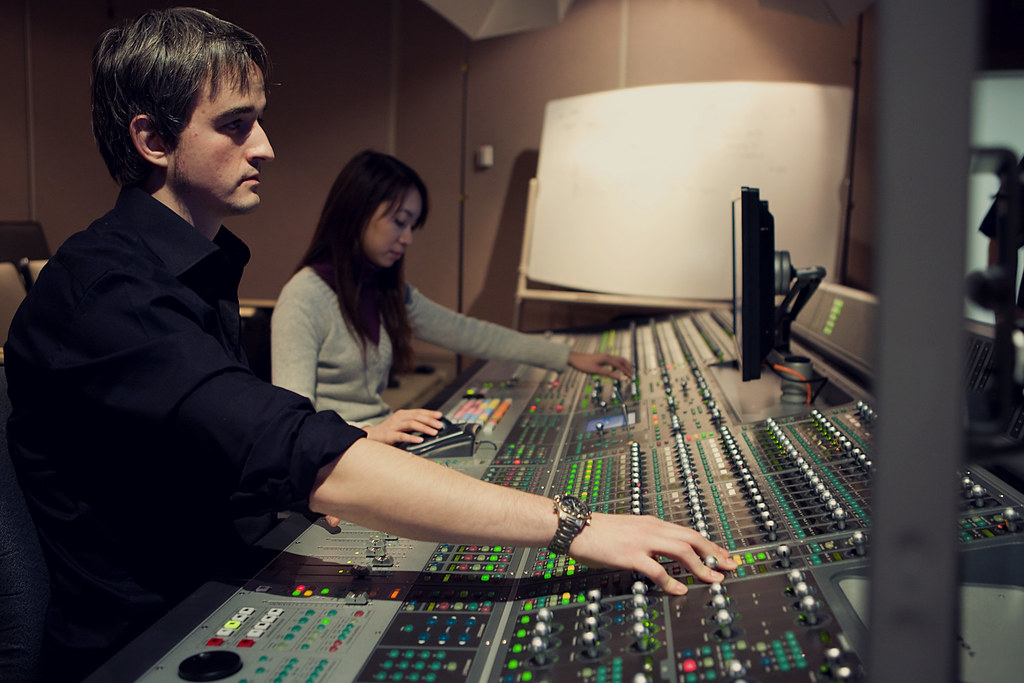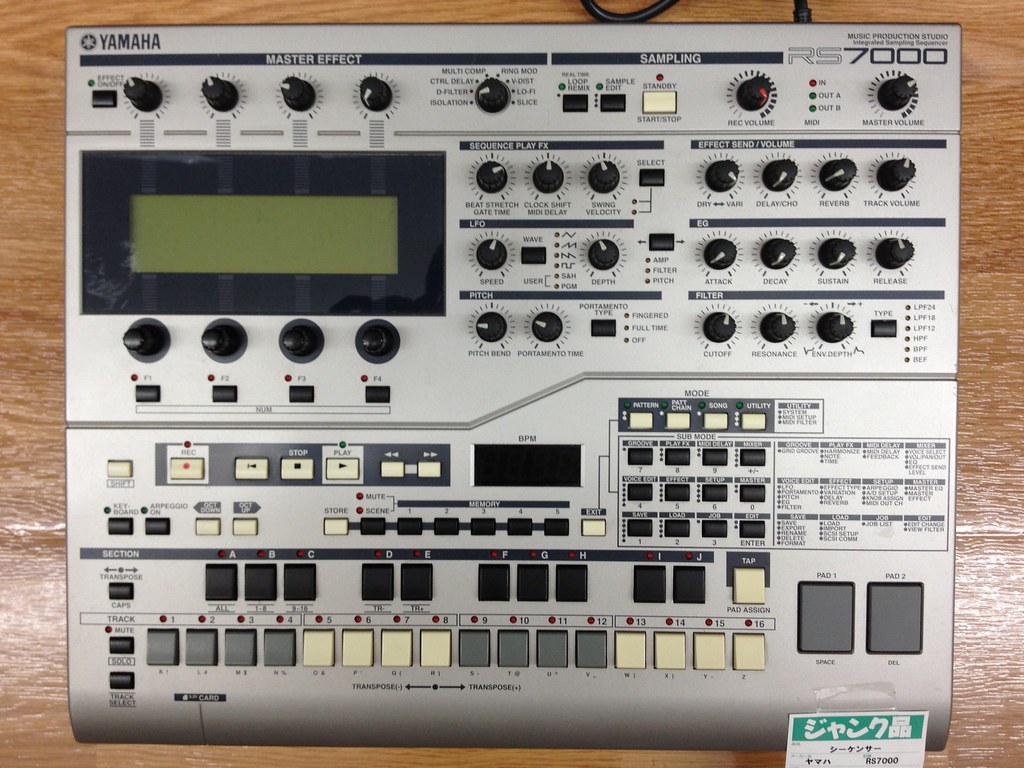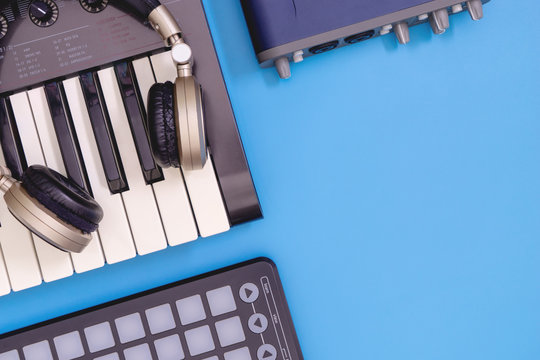As technology continues to advance, the music industry is constantly evolving. With the rise of digital music production, many are questioning the future of music production and what it means for job prospects in this field. Will automation take over? Or will there still be a need for skilled professionals in the industry? In this blog post, we’ll explore the latest trends and predictions for the future of music production and what it means for those looking to pursue a career in this exciting field. So let’s dive in and discover what lies ahead for music production!
Table of Contents
Introduction: The State of Music Production Job Market
The music production job market has experienced significant changes in recent years due to the rise of digital technology and the proliferation of streaming services. While there is still a demand for traditional music production roles such as studio engineers, producers, and mixers, many new positions have emerged that require expertise in areas like social media marketing, data analysis, and virtual reality. Additionally, the shift towards remote work has created opportunities for freelance music producers who can collaborate with artists and clients from all over the world. Despite these changes, however, competition remains fierce in the industry due to its popularity and prestige. Therefore it’s important for aspiring music producers to stay up-to-date with current trends while also developing a diverse set of skills that make them stand out among their peers.
Music Production Job Prospects: Current Trends and Future Predictions
Job prospects for music production are on the rise, thanks to the growing demand for music across various platforms. With the rise of streaming services and social media, there is a constant need for new and original music content. This has led to an increase in job opportunities for music producers, composers, and sound engineers. According to the Bureau of Labor Statistics, employment of music directors and composers is projected to grow 3 percent from 2019 to 2029. The demand for sound engineering technicians is also expected to increase as more musicians and recording studios require their services. However, competition for jobs in this field can be tough, as many aspiring producers and engineers are drawn to the glamour of the industry. To stand out in this competitive market, it’s important to have a strong portfolio and keep up with the latest trends in technology and music production techniques.
Skills in Demand: What Employers are Looking for in Music Producers
Technical expertise and creative vision are two of the most sought-after skills in music production. Employers are looking for producers who have a deep understanding of the technical aspects of recording, mixing, and mastering music, as well as the ability to bring a unique creative perspective to their work. This means having a strong knowledge of music theory, composition, and arrangement, as well as experience working with different genres and styles of music. In addition to technical and creative skills, communication and collaboration are also important traits for music producers. They must be able to work effectively with artists, engineers, and other professionals in the industry to bring their vision to life. As technology continues to evolve, staying up-to-date with the latest software and equipment is also crucial for success in this field.

Music Production Career Paths: From Studio Engineer to Composer
Music Production Career Paths: From Studio Engineer to Composer**
There are a variety of career paths available for those interested in music production. A popular choice is becoming a studio engineer, which involves recording and mixing music tracks in a recording studio setting. Another option is to become a producer, overseeing the entire process of creating an album or song from start to finish.
For those interested in composing music rather than engineering it, there are opportunities as well. Film scoring is one such avenue that can be both challenging and rewarding. Composition work may also involve writing jingles or commercial music for advertising agencies.
The key takeaway for aspiring music producers is to remain open-minded when considering career paths within the industry. Networking and building relationships with established professionals can also help lead to new opportunities and collaborations down the line.

Freelancing in Music Production: Opportunities and Challenges
Freelancing in music production can be a lucrative career option for those who have the skills and experience to succeed. However, it also comes with its own set of challenges. One of the main advantages is that you get to work on your own terms, choosing which projects you want to take on and working from anywhere. This can lead to a better work-life balance, but it also means that you need excellent project management skills and self-discipline.
Another challenge is finding consistent work as a freelancer. Networking and building relationships with other professionals in the industry is essential for gaining new clients and getting repeat business. It’s important to establish yourself as reliable, trustworthy, and skilled in order to stand out in a competitive market.
Overall, freelancing in music production requires a lot of dedication and hard work, but it can be very rewarding both financially and creatively if done successfully.

Education and Training: How to Prepare for a Career in Music Production
Education and Training are crucial for anyone looking to pursue a career in music production. While there are no specific educational requirements for this field, having a degree or certification in music production, audio engineering, or a related field can give you an edge over other candidates. Additionally, hands-on experience through internships or apprenticeships can provide valuable skills and connections in the industry.
Many universities and technical schools offer programs in music production, ranging from short-term courses to full-fledged degree programs. These programs cover topics such as sound design, mixing and mastering, music theory, and digital audio workstations (DAWs). It’s important to research different programs and find one that aligns with your career goals.
In addition to formal education, continuing education is also important in this constantly evolving field. Staying up-to-date with new technologies and techniques can help you stay competitive in the job market. Attending workshops, conferences, and online courses can provide valuable knowledge and networking opportunities.

Technology and Innovation: How They are Shaping the Future of Music Production Jobs
The Rise of AI and Automation in Music Production Jobs
The rise of AI and automation in music production jobs is a double-edged sword. On the one hand, it presents exciting opportunities to streamline workflows, reduce costs, and increase efficiency. For example, AI-powered tools can be used to analyze musical elements such as tempo, harmony, and melody to create personalized playlists or suggest chord progressions. On the other hand, it also raises concerns about job displacement among music producers who perform routine tasks that can be automated. While human creativity remains essential in producing high-quality music that evokes emotions and connects with audiences on a deeper level, musicians will need to adapt their skills and embrace new technologies to remain competitive in the fast-changing industry.
Virtual Reality and Augmented Reality: New Frontiers for Music Production
Virtual reality (VR) and augmented reality (AR) are rapidly emerging as new frontiers for music production. With the advancement of technology, musicians and producers can now create immersive experiences for their audiences. VR technology allows for the creation of 360-degree music videos, where viewers can feel like they are part of the performance. AR technology, on the other hand, enables musicians to overlay digital elements onto real-world environments, creating interactive and engaging experiences. As these technologies continue to evolve, music production professionals who are skilled in VR and AR will be in high demand, opening up new job prospects and opportunities for those with expertise in this area.
The Impact of Blockchain Technology on Music Production Jobs
Blockchain technology is set to revolutionize the music industry by providing a secure and transparent platform for artists to distribute and monetize their work. With blockchain, musicians can receive direct payment for their music without the need for intermediaries such as record labels or streaming services. This creates new opportunities for independent artists to establish themselves in the industry and earn a living from their work. Additionally, blockchain technology can help to combat issues such as piracy and copyright infringement, ensuring that artists are properly compensated for their creations. As blockchain continues to evolve, it is likely that we will see an increasing number of music production jobs focused on this innovative technology.
How Cloud Computing is Revolutionizing Music Production Workflows
Cloud computing is transforming the way music production work is done. Remote collaboration has become more accessible, allowing musicians and producers to work together on projects from different locations simultaneously. The cloud provides a central platform for file sharing, making it easier to manage large audio files without running into storage issues. Additionally, cloud-based software solutions are becoming increasingly prevalent in the industry, providing affordable alternatives to expensive traditional hardware and software setups. With these innovations, music production professionals can expect more flexibility and cost savings as they continue to adapt with evolving technology trends in the field.
Conclusion: Navigating the Changing Landscape of Music Production Employment
As the music industry continues to evolve, so do the job prospects for music production professionals. Adaptability and innovation are key to navigating this changing landscape. Keeping up with emerging technologies and trends is crucial, as is having a diverse skill set that includes not only technical proficiency but also creativity and collaboration. Networking and building relationships within the industry can also open doors to new opportunities. While freelancing offers flexibility, it also requires self-discipline and business acumen. Education and training can provide a solid foundation, but ongoing learning is essential for staying relevant in this field. Embracing new technologies such as AI and virtual reality can also offer exciting possibilities for music production careers. Overall, success in this field requires a combination of technical expertise, creativity, adaptability, and a willingness to embrace change.
In conclusion, the world of music production is dynamic and constantly evolving. The job market continues to be competitive, but there are plenty of opportunities for those who have the skills and determination to succeed. Understanding current trends and predictions for the future can help job seekers navigate the changing landscape of employment in this field.
Whether you’re interested in a career as a studio engineer or composer, or prefer to freelance your way through various projects, there’s no shortage of options available. However, staying on top of emerging technologies and industry developments will be crucial in order to remain relevant and employable.
If you’re looking for more information on music production careers or want to hone your skills further, check out our other content for valuable insights and resources. By keeping up-to-date with all things related to music production jobs, you’ll be better equipped to achieve success in this exciting field!
Questions
Who hires music producers?
Record labels, film studios, and TV networks.
What skills do I need for music production?
Creativity, technical proficiency, and industry knowledge.
How much do music producers make?
Salaries range from $30,000 to $150,000 per year.
Who can benefit from music production courses?
Anyone interested in music production as a career or hobby.
What are the job prospects for music producers?
Demand is high, but competition is fierce.
But isn’t the music industry dying?
The industry is evolving, but music will always be in demand.


